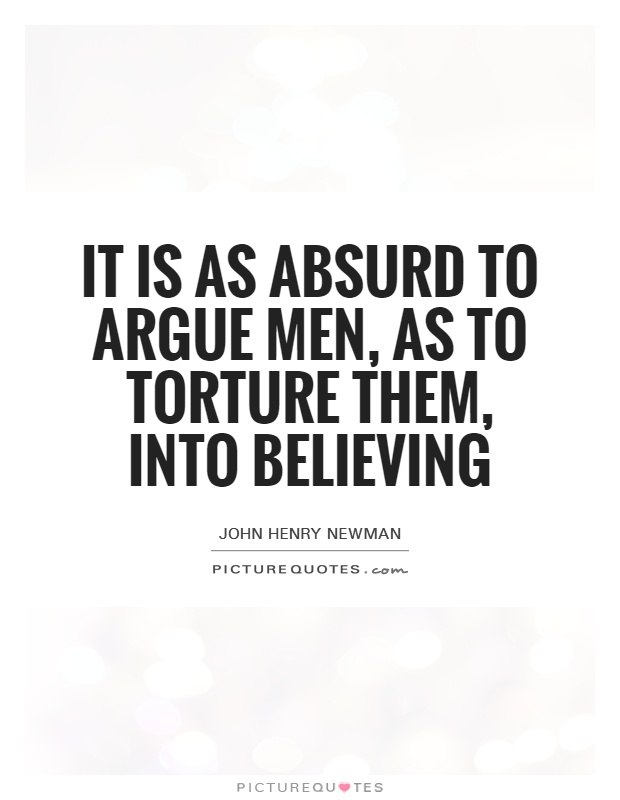It is as absurd to argue men, as to torture them, into believing

It is as absurd to argue men, as to torture them, into believing
John Henry Newman, a prominent figure in the 19th century religious landscape, was a firm believer in the power of persuasion and reasoned argumentation in matters of faith. He famously stated, "It is as absurd to argue men, as to torture them, into believing." This quote encapsulates Newman's belief that true faith cannot be forced or coerced, but must be arrived at through a process of intellectual engagement and personal reflection.Newman was a leading figure in the Oxford Movement, a group of Anglican theologians who sought to revive the Catholic elements of the Church of England. He was also a prolific writer and thinker, known for his works on theology, philosophy, and education. Throughout his life, Newman emphasized the importance of intellectual inquiry and critical thinking in matters of faith.
Newman's quote reflects his belief that faith is a deeply personal and individual matter that cannot be imposed from the outside. He rejected the idea of using force or coercion to compel belief, arguing that true faith must be freely chosen and embraced by each individual. Newman believed that faith should be based on a sincere and honest engagement with the evidence and arguments for religious belief, rather than on external pressure or manipulation.
Newman's emphasis on the importance of reasoned argumentation in matters of faith was a radical departure from the prevailing attitudes of his time. In an era marked by religious intolerance and dogmatism, Newman's approach was a breath of fresh air, emphasizing the importance of intellectual honesty and open-mindedness in matters of religion.
Overall, Newman's quote serves as a powerful reminder of the importance of intellectual engagement and personal reflection in matters of faith. It challenges us to approach questions of religion with an open mind and a willingness to engage with the evidence and arguments on their own merits. In a world where religious beliefs are often used as a tool for division and conflict, Newman's message of reasoned argumentation and intellectual inquiry remains as relevant and important as ever.












 Friendship Quotes
Friendship Quotes Love Quotes
Love Quotes Life Quotes
Life Quotes Funny Quotes
Funny Quotes Motivational Quotes
Motivational Quotes Inspirational Quotes
Inspirational Quotes